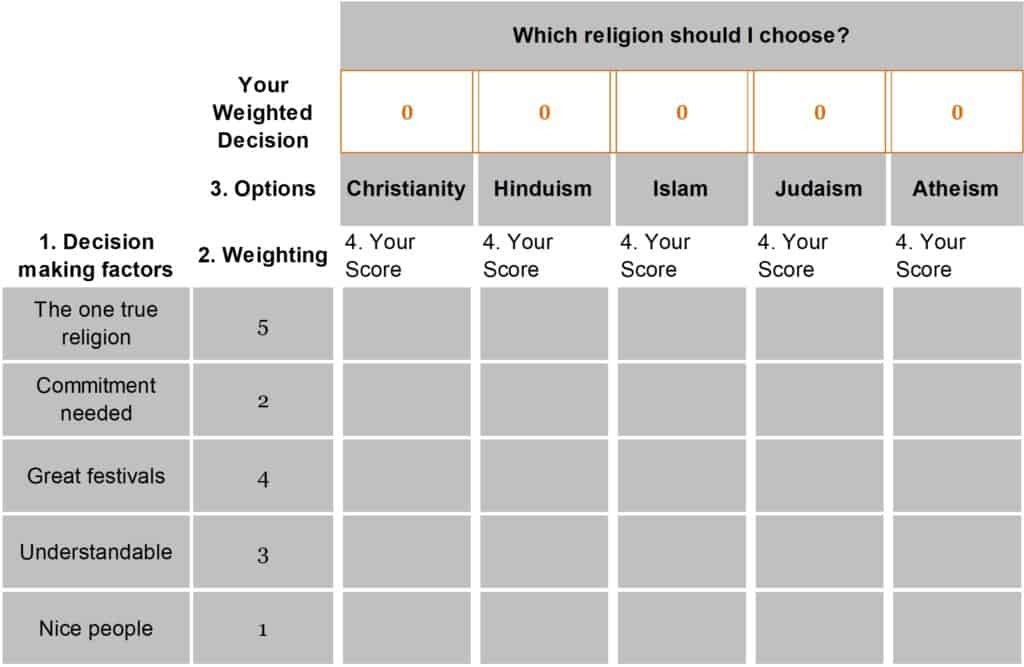Do we choose what religion we practice?
After reading this please go to our weighted decision matrix template downloads page to make your own decision.
Most people are religious (or not) because of their upbringing, their parents and their schooling. None of us really choose what religion we practice, do we? Surely every population the world over would have similar religious demographics if religion was a choice? To argue against that is very difficult indeed but please feel free in the comments below.
Should we even be thinking about what religion to practice at all? Some people will argue that religion or specifically, God chooses us. If that is true then how come “God” comes in different forms depending on which religion you follow? Of course, He doesn’t come in different forms because there is only one true God, all of the others are false. The problem with that line of argument however is that a devout Christian will argue just as strongly as a devout Muslim that their God is the one true God. Assuming that each of them has had a revelation about which they have no doubts then why is the ‘fake’ God as compelling as the true God who should really win the day hands down, what with being omnipotent and all that! Unfortunately that argument never reaches a conclusion as the devout will rely on arguments such as “it’s God’s will.” Other evidence is accepted by believers and dismissed out of hand by atheists.

Back to the point, if it were correct that we choose what to believe then we can also agree that disbelief goes against God and is a sin. If God chooses for us whether or not we believe then He chooses that some perfectly decent people are damned to go to hell as some religions tell us. So, if we choose our faith then disbelievers are damned and if God chooses for us whether or not we believe then He is maybe not as nice and forgiving as we would want to believe. People such as Richard Dawkins however say that atheism is the only logical position with our current level of knowledge. Whichever point of view you take there are implications you need to understand. Did your parents give you the answers to those as well or have you worked them out for yourself? Let us know in the comments below and then (for a bit of fun) go and choose what religion to practice.
